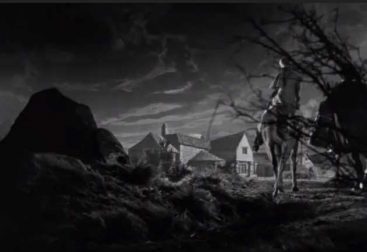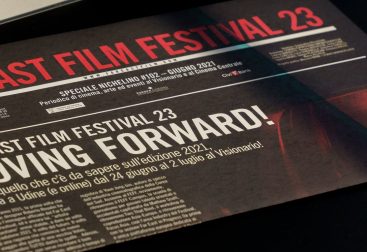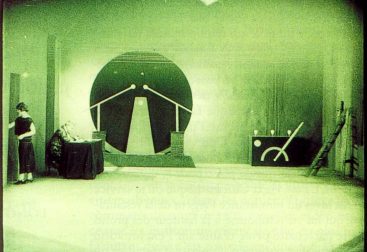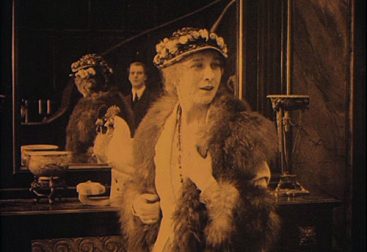The new film concept of Baden-Württemberg appeared in autumn last year. The current situation is analyzed on a good 100 pages and the course is set for the future.
When creating the concept, the Ministry of Science, Research and Art was supported by an advisory board made up of several experts, including: B. Susanne Marschall, professor for film and media studies at the University of Tübingen, who took part in all forums together with the young academics from her institute.
The film and cinema area participated in the process, especially in forums that discussed the various topics of film conception. At this point I have to let a small drop of bitterness flow into the representation. A forum was organized for the film festivals that take place in the state of Baden-Württemberg, but only those festivals were invited that were funded directly by the Ministry of Science, Research and the Arts. The Karlsruhe Silent Film Festival, which is not funded directly from the Ministry, but via cooperation with the Kinemathek Karlsruhe through the Medien- und Filmgesellschaft BaWü (MFG), was not invited, and neither were the two other Karlsruhe film festivals, to my knowledge.
A forum was also organized for the cinemas, and there were also a few places for the municipal cinemas of Baden-Württemberg, which are united in a regional association. The Karlsruhe Silent Film Festival is a member of the regional association of local cinemas, but it was not invited to this forum either because it is not a cinema. The silent film festival fell between all chairs and was never able to draw attention to itself at a forum.
The very first chapter of the new film concept is dedicated to the “future issues for film and media in Baden-Württemberg”. Which topics are meant is easy to read from the sub-headings: it is about “gender equality and diversity”, “ecological” and “social sustainability” and finally also “film and media education”.
In my opinion, the film concept hardly goes beyond relatively general set phrases. Sure, the need to increase film and media education is emphasized. But when I took a cursory look at the study regulations of the University of Heidelberg, I was unable to determine that, for example, attending a film studies seminar is stipulated in the study regulations for high school teachers in German or the fine arts.
In order to strengthen film studies education in schools, the young scientists from the institute of Professor Dr. Susanne Marschall pronounced. That is gratifying – I would have found it even more gratifying to include the term cultural sustainability in the film concept and to fill this term with content.
I have strayed from the portrayal of the film concept. After the topics of the future, the text deals with the role of the media and film company Baden-Württemberg. MFG is a non-profit GmbH whose shareholders are in equal parts the state of Baden-Württemberg and the SWR. This also includes one of the most important tasks: the financing of film productions that are carried out by and in the vicinity of SWR. With the establishment of the MFG, some of the tasks that were previously performed by two ministries (Ministry of Science, Research and Art and the Ministry of State) were outsourced. Only the funding of the film festivals in Baden-Wuerttemberg initially remained with the two ministries, which for a while repeatedly led to competitions between the two ministries, until the funding of the film festivals was then transferred entirely to the Ministry of Science, Research and Art. However, the ministry only funds the larger film festivals and the MFG none at all, unless, as already mentioned, they enter into a cooperation with a communal cinema and then benefit from the complementary funding for communal cinemas, which are actually rightly emphasized, as in the film concept is practically unique in Germany.
Since the MFG does not sponsor any film festivals directly, and the ministry does not want to sponsor any small film festivals, there have only been developments in the field of film festivals in recent years that were practically in line with Stuttgart’s interests. In the following I would like to explain what this means for Karlsruhe.
Before doing this, I would like to briefly refer to the chapters on the production funding of feature films, documentaries and computer games of the film conception. There are no well-known film production companies in Karlsruhe, and the national or international importance of the structures in Stuttgart should not be overestimated. However, the institutions and companies that have emerged in Stuttgart and in the vicinity of the Ludwigsburg Film Academy and that deal with the production of animated films have a great and well-deserved reputation. You have rightly received international awards and also play an important role internationally. Strangely enough, however, the State Audit Office criticizes some of the existing funding instruments. However, the film concept – and thus the ministry – emphasizes the relevance of these funding structures and, contrary to the advice of the State Audit Office, would like to keep them.
I would also just like to briefly touch on the cinema funding of the MFG. To support commercial cinema companies, MFG awards cinema program awards. Furthermore, film distributors based in Baden-Württemberg receive sales subsidies for the films that they bring to the distribution.
What are the sums in this context? According to a list of the FilmFörderAnstalt (FFA), which was kindly made available to me by an employee of the Stuttgart Film & Medien Festival GmbH, the MFG awarded funds totaling 13.85 million euros in 2019; for comparison: in Bavaria there were 42.03 million; in NRW 40.26 million; in Hamburg 12.68 million euros. Baden-Württemberg looks a bit modest in this respect; not only when you consider the economic strength of this country.
So we come now to the promotion of the – admittedly – mehro of the few small film festivals in Karlsruhe. In short, none of them are mentioned at all in the country’s new film concept. … Take a deep breath… Neither the Independent Days nor the dokka Festival and just as little the Karlsruhe Silent Film Festival – and also the Beyond Festival, for me an idiosyncratic mixture of film festival and symposium, all of them are missing in the film concept of the state of Baden-Württemberg.
It should be understood as a symptom of justice, at least I think, that not a single one of these film festivals that we have in Karlsruhe is worth mentioning for the new film concept. If the film concept had only documented one of the film festivals, that would have been tantamount to belittling the others. So the film concept doesn’t mention anything and in this sense allows justice to prevail.
As far as I know, the Baden-Württemberg does not support any of the film festivals directly. The dokka festival and the silent film festival receive complementary funding from the MFG because they take place in cooperation with the Kinemathek Karlsruhe, the municipal cinema. As far as I know, the Independent Days only benefit indirectly from MFG funds. However, all three festivals are supported by the city of Karlsruhe. How exactly this works at the Beyond Festival is not known to me in detail. It doesn’t play a crucial role here either. In any case, it is just as ignored by the film concept as the three other film festivals.
Of course, all of this is painful for the soul of the Karlsruhe film fan. And the non-mention of the festivals confronts us mercilessly with the reality of the “Filmstadt Karlsruhe”, a term that has been used occasionally by cultural politicians in and outside the town hall for some time, but which the Badische Neuesten Nachrichten occasionally makes fun of to have. Even if I would like it to be different: it corresponds to the truth and the harsh reality – Karlsruhe isn’t a film city. If Karlsruhe is very high in a cultural area, then it is the domain of serious music. Karlsruhe was already a city of music in the 19th century, and Richard Wagner seriously considered the idea and asked himself whether the house that is now in Bayreuth should be located in Karlsruhe. Brahms had one of his symphonies premiered here (see the inscription on the Deutsche Bank building on Kaiserstraße). Karlsruhe has a highly respected University of Music, a Richard Wagner Society, which tends to work in secrecy, and numerous foundations that promote young talent in the musical field. In Karlsruhe, film and cinema are only funded by one foundation: the Georg-Fricker-Stiftunng. But according to its statutes, this foundation can only support events and other activities in the Schauburg. There is no foundation that fully supports cinema and film – but at least in this respect the former city of residence is not alone – Karlsruhe has this feature in common with many other German cities.
On the other hand, there is a wide range of funding from the city of Karlsruhe itself in the field of music. When she began her work, several years ago, the outgoing head of the cultural office, Dr. Susanne Asche, who expressed the idea that one should think about cutbacks in the field of serious music, poured out what is now called a “shit storm” in the local newspaper in letters to the editor. The head of the cultural office has never dared to repeat a corresponding statement …
Felix Schaulust











